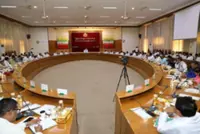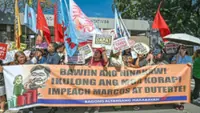Malaysian politics is in chaos. Issues of legitimacy, political arithmetic and treachery are causing intense grief, anger and frustration.
In the quest for power and money, the Rakyat are betrayed. It’s déjà vu all over again.
Already a subscriber? Log in
The Star Festive Promo: Get 35% OFF Digital Access
Cancel anytime. Ad-free. Unlimited access with perks.
Follow us on our official WhatsApp channel for breaking news alerts and key updates!
Thank you for your report!






